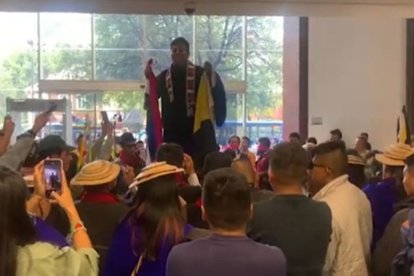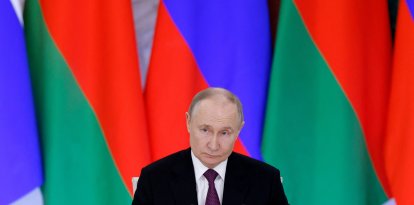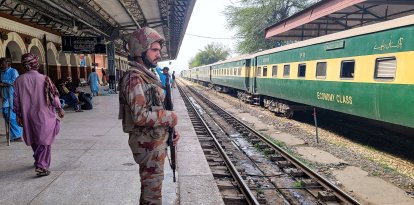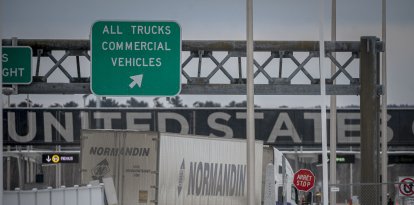Is Colombia following in Venezuela's footsteps?: Petro's "collectives" violently break into Semana magazine's headquarters
“These acts are a message of intimidation to the free press and a warning that warrants institutional action.”

(Youtube - El País Cali)
This Friday in Colombia there was an attack against freedom of the press when an indigenous group that supports Gustavo Petro decided to force their way into the building of Semana magazine, an important media outlet critical of the Colombian government.
The affected media explained through its web portal that the violent group arrived in a bus that parked in front of their building and from there they got off and entered the headquarters. The indigenous group broke some windows at the entrance and even attacked one of the guards to achieve their goal of entering the building.
For about an hour, the workers who were present “lived in moments of panic,” it was reported.
Rejection of violent events
The news caused politicians, journalists and members of society to warn that the attack was not simply on a building, but on the freedom of the press and that the person responsible for this is the President of Colombia.
“This is the result of Petro's violent language against the media and journalists who do not blindly applaud him,” said Senator Miguel Uribe Turbay.
“It is very serious that groups encouraged to mobilize by the Government forcibly break into a media outlet. These acts are a message of intimidation to the free press and a warning that warrants forceful institutional rejection and judicialization. This is the combination of all forms of struggle against freedom and democracy,” said former Colombian president Ivan Duque.
The United States embassy in Bogotá also condemned the attack and reiterated its commitment to journalists so that they can practice their profession without pressure or threats.
Is Venezuelan history repeating in Colombia?
In Venezuela, intimidation has been one of the most used resources to control dissidents, first by the Chávez regime and then by Maduro. The attack that Semana magazine experienced this Friday is very similar to those suffered by various media outlets and journalists by the so-called social collectives in Venezuela.
What are the collectives in Venezuela?
The so-called collectives, at the start, were social groups that worked on social, cultural and political projects promoted by Hugo Chavez, but over the years they became armed gangs used by the regime to carry out dirty tasks and to intimidate those who made them uncomfortable without having to get directly involved.
Since Chávez came to power, these armed groups have been essential to control territories, send threatening messages, disperse protests and even kidnap protesters to hand them over to the authorities.
The advantage of these groups is that they allow the government to achieve its objectives and then exonerate itself by stating that the conflicts or violent events were caused by civilians.
"We are organizations that have been created as security measures to defend the government structure, the people and the political cadres," explained in 2017 anonymously by one of the leaders of the groups that have used force in Venezuela with total impunity.
Attacks in Venezuela
Although the collectives began to emerge during the Chávez era, attacks by these armed groups have intensified under Nicolás Maduro.
Possibly the first reports of intimidation by these armed groups were at the headquarters of Globovisión, when members of the groups on motorcycles surrounded the studios to intimidate both employees and visitors.
Little by little these groups' methods escalated and became more violent. El Nacional has possibly been one of the media outlets attacked the most by the regime and its groups.
A report indicates that the first physical attack that El Nacional suffered with Nicolás Maduro was in April 2013, and since then threats and judicial persecutions, among others, have occurred.
In June 2016, El Nacional's facilities were attacked in the early hours of the morning. Buses scratched its façade and excrement was thrown.
"What they cannot do directly with the repressive forces, they send the collectives to do," reported Miguel Henrique Otero, president and executive director of the newspaper El Nacional.
Reports of intimidated media and even journalists being beaten by these armed groups became common in Venezuela, and now Colombia could be beginning to follow the same steps as the country is in crisis.
However, we still have to wait to find out if other media outlets will be affected by these violent groups and if this will be the beginning of a break for freedom of expression in Colombia.
RECOMMENDATION





















